From peer counseling to health care mentoring
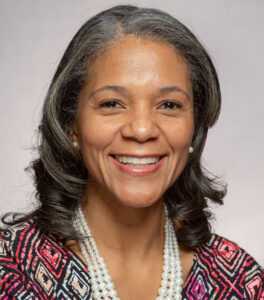
Deneen Blow ’91
By Jill Spotz
Many professionals look back on the progression of their careers and find their paths to be nonlinear. Although these twists and turns may seem random, they usually are connected to a unifying passion or focus. For economics and business major Deneen Blow ’91, her path took her from Lafayette College to Case Western Reserve University, to Johnson & Johnson, and then to a distinguished career in the medical field. Her passion—health care.
Looking back on her education and career trajectory, Blow feels her success is linked to a collection of previous experiences, co-workers, and directors, all having influenced her path to success.
“You learn something from everyone, right? The good and bad,” Blow explains. “I’ve learned what to do and what not to do in my career from previous work experiences and personal interactions along the way. My education at Lafayette and Case prepared me as well. I think it’s a confluence of many factors.”
Fortunately, Blow’s early experiences as an undergraduate positively shaped her path to success. She has fond memories of several professors including Rex Ahene, Bob Weiner, Brian Washington, Stephen Lammers, and others who challenged and supported her throughout her four years on College Hill.
“I enjoyed my liberal arts education at Lafayette,” Blow says. “Having the opportunity to take broad courses that matched my interests in addition to my major, as well as interacting with a diverse group of individuals, was terrific.”
While at Lafayette, Blow was a member of the softball team for three years. In fact, in reviewing prior College yearbooks, she was one of the first Black women to play softball at Lafayette and may have actually been the first. Blow was also a member of the Association of Black Collegians, served as co-editor of The Change newsletter, and participated in a few plays including a student production of “The Colored Museum,” which took place at the Black Box Theatre in the Williams Center for the Arts.
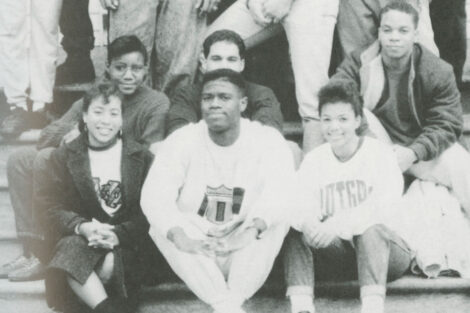
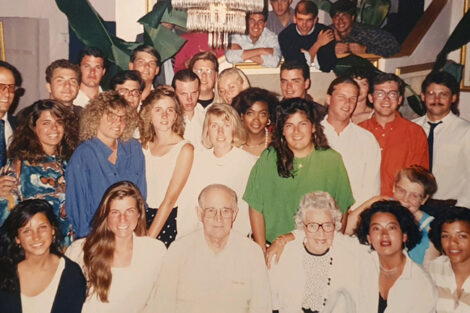
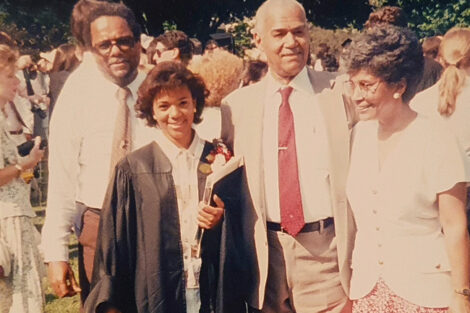
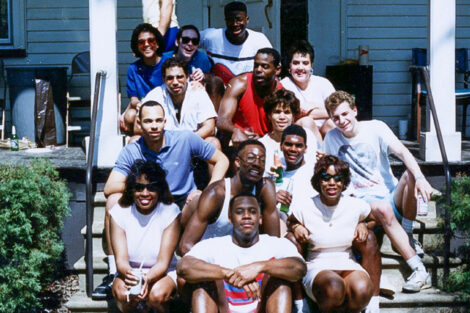
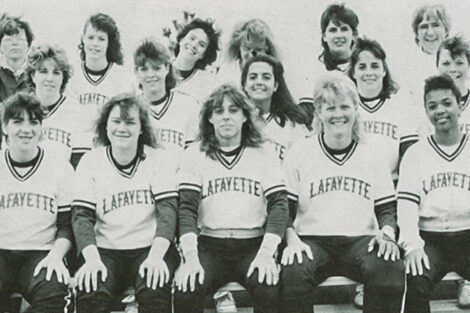

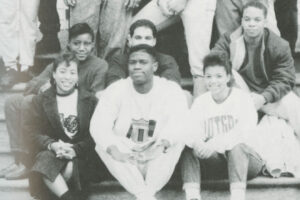
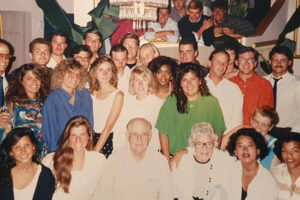
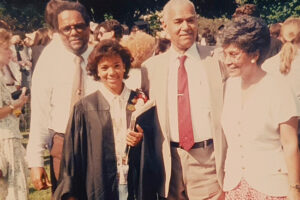
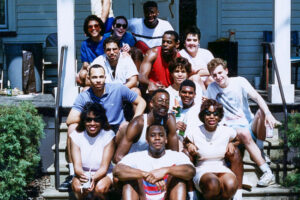
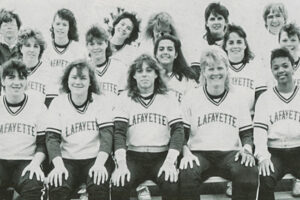

Blow also served as a peer counselor during her sophomore through senior years at Lafayette. She became interested in the role after benefiting from a terrific mentor as a first-year student.
“I really enjoyed mentoring younger classmates,” Blow says. “There are a few students who I continue to keep up with, and it was nice to see how they progressed through school and after school.”
Serving in a mentor capacity, in fact, has remained important to Blow throughout her career, and there have been many opportunities where she continues to provide guidance, feedback, and advocacy for colleagues. Currently at Rutgers Robert Wood Johnson Medical School and for the past several years, Blow has been mentoring staff in health care administration. “Health care is a broad field, with any number of positions you can dive into, clinical or nonclinical. Administration ties it all together. There is a wonderful structured mentoring program at Rutgers University that I volunteer with. The program matches mentors and mentees for a yearlong program, even providing peer-mentors for some. I have continued to keep in touch with my mentees even after the program formally ended, providing feedback, offering advice, or just listening. I would encourage everyone to have a mentor or peer-mentor. Even CEOs and executives have mentors,” Blow emphasizes.
After graduating from Lafayette in 1991, Blow launched her career at Johnson & Johnson in accounts receivable and collections. She was employed at J&J during a key moment in U.S. history—the 1995 Oklahoma City bombing. At the time, it was the deadliest act of terrorism in the U.S. That horrific attack led to multiple calls to medical suppliers across the U.S., including Johnson & Johnson. This experience ultimately influenced her decision to pursue a career in health care.
“Looking back, I think that experience is what helped spark my interest in health care,” Blow explains. “A few companies were calling us [Johnson & Johnson] for emergency supply orders. Not knowing what was happening, they needed us to lift their credit holds and place large orders. I connected with employees at several companies, and we spoke about why it was so important to secure supplies at that time. I needed to understand what their companies and communities were experiencing, but they also needed to understand that once the crisis was over, becoming financially responsible to J&J. I was in accounts receivable and collections and you might think, ‘What does accounting have to do with health care?’ Well, I think you can study almost anything and it could translate into a career in health care. You can study economics and business (my major), psychology, law, biology, accounting, chemistry, and the list goes on.”
Blow’s experience at J&J prompted her to seek an MBA in health systems management at Case Western Reserve University. After earning her degree, Blow returned to New Jersey from Cleveland and landed a job at the University of Medicine and Dentistry of New Jersey (now Rutgers University) in its grants department. She then transitioned to the department of surgery, where she worked for more than 20 years.
A new chapter began for Blow this spring as senior director of administration in the department of pathology and laboratory medicine and the Center for Dermatology at Robert Wood Johnson Medical School in New Brunswick, N.J. “It’s an exciting opportunity and one that I am thoroughly enjoying,” she says. She is responsible for the operational and fiscal management of the pathology and dermatology departments. “There’s lots of work and lots of great people. I’m looking forward to it all.”
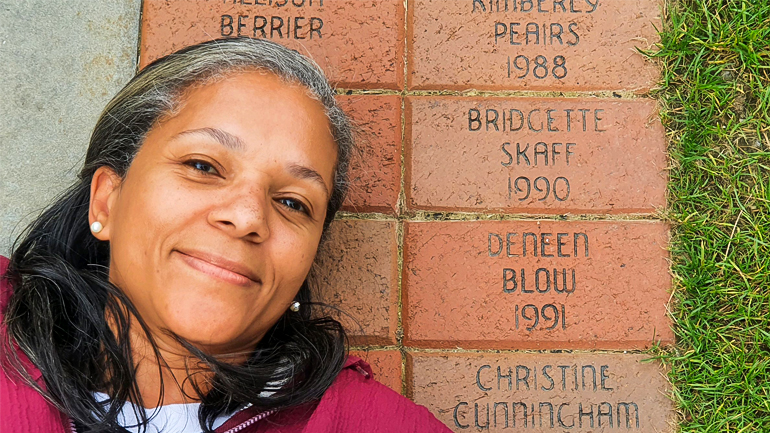
Deneen Blow ’91 visited her brick on the Quad during her visit to campus for Reunion 2023.
Blow reunited with friends at Lafayette last year for the Lafayette-Lehigh Rivalry game. As a former resident of Portlock Black Cultural Center when it was located at 101 McCartney St., she enjoyed attending the dedication of the new center last fall.
“I lived in the former Portlock Center with three other women for one year, which I believe may have been the first time that women lived in The House, as it was affectionately named,” Blow says. “There weren’t many Black students on campus, and men had previously always lived in Portlock. We (women) wanted to benefit from living in the house as well, to experience that sense of community firsthand. Dawn Person, assistant dean for academic support services, was an adviser to us, and she helped to make that happen. As a Black woman in a leadership role at Lafayette, she understood us and helped us more than she probably knew.”
One of Blow’s fondest memories occurred while living at Portlock. Nelson Mandela, leader of the movement to end South African apartheid, was released from prison after 27 years in February 1990. “I remember that everybody was at The House. It was on the news, everyone was talking about it; it was an amazing, moving time. It sticks out in my mind as a significant memory, just being there and learning of the news in our space and watching it all unfold, wondering what this meant for the world,” Blow says.
During her most recent visit back to campus, Blow found her named brick on the Quad, a benefit that is earned after 10 years of consistently supporting the College. “Lafayette is a special place. I have roommates and friends from 30 years ago that are still friends today. Since Lafayette has been a big part of who I am, I give back. I support the McDonogh Network, the Association of Black Collegians, and the softball team,” she says. Blow encourages anyone who debates about giving back, to find a way to support the school. “Whether through a financial gift, mentoring, or volunteering, you can find a way to pour back into Lafayette. It doesn’t matter how much you give, but that you give.”